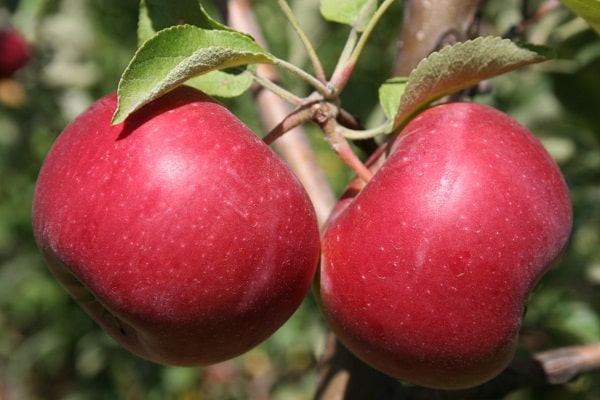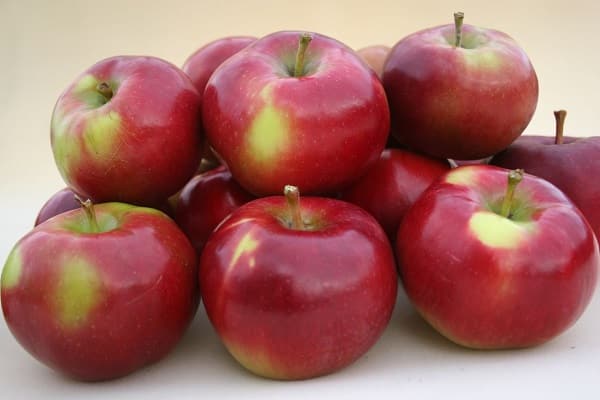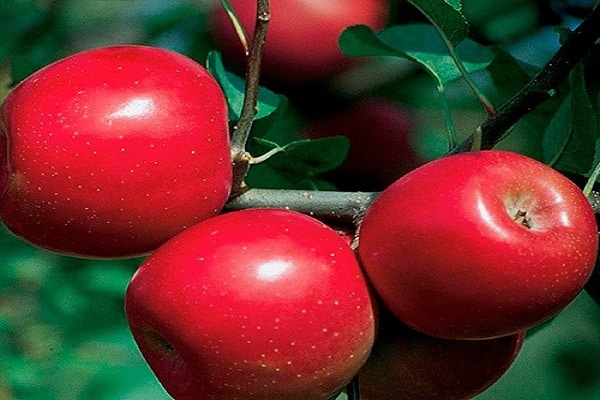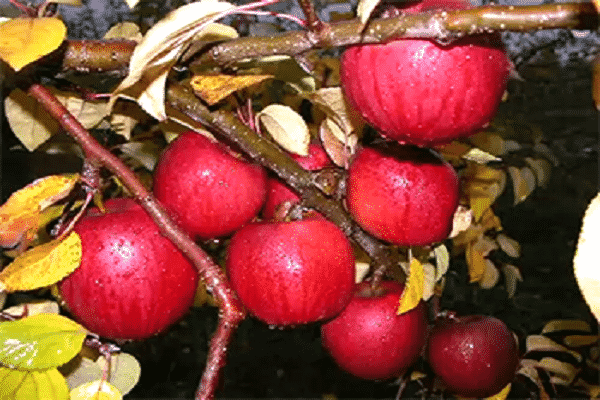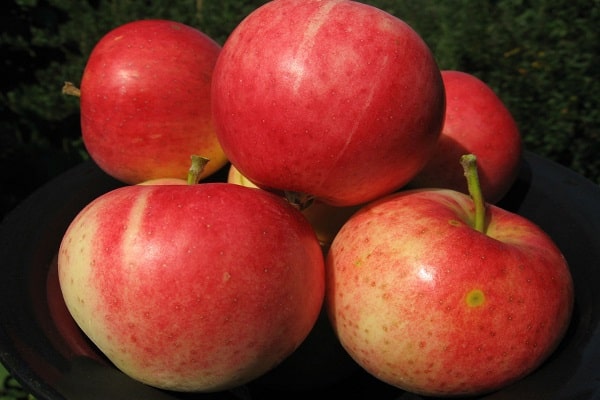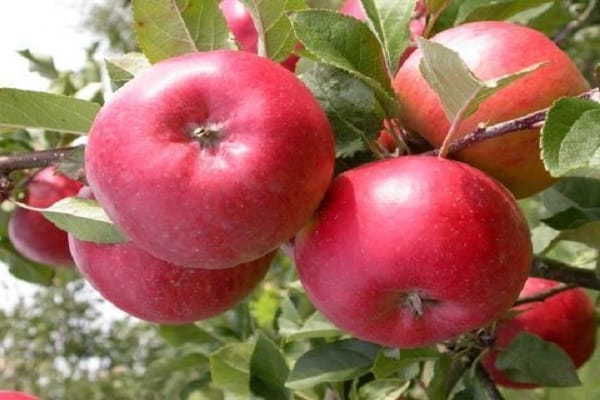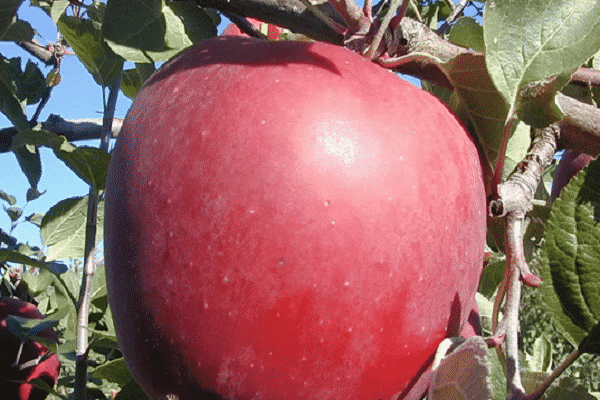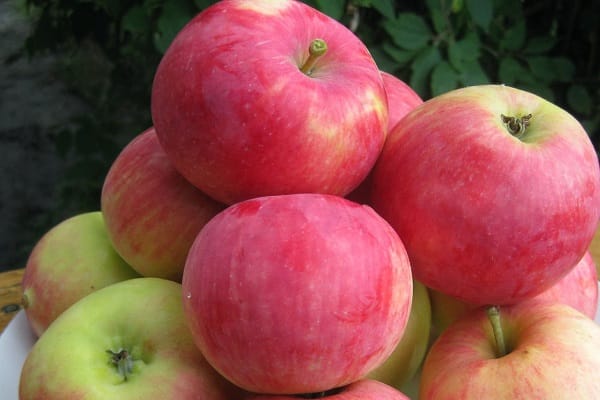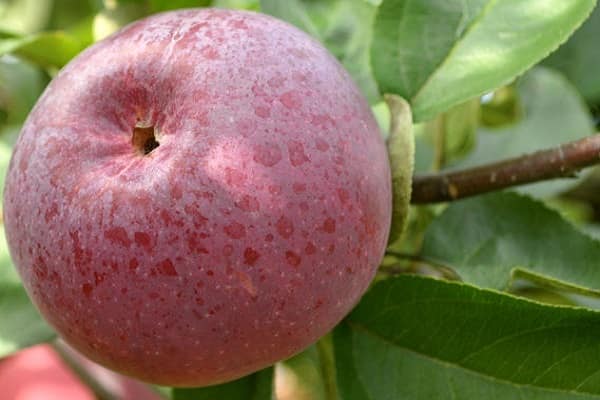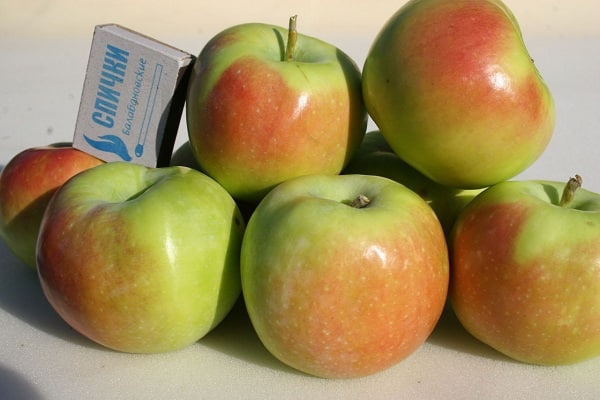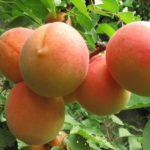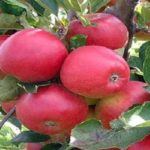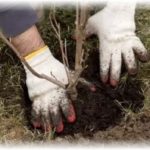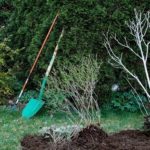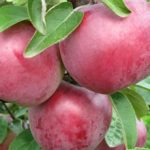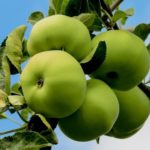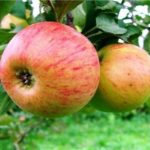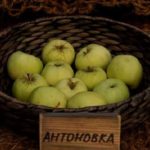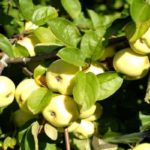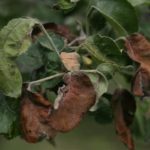Apple is a healthy and tasty fruit that is dearly loved by everyone in our country. Dozens of varieties have been bred that allow us to enjoy this product not only in summer, but also in late autumn. These include the apple tree, popularly known as Enterprise. Its fruits ripen more slowly than usual, and the variety belongs to the winter category. What are the advantages of Enterprise and how to grow it, we will learn from the material below.
Description and characteristics of the variety
The first trees of the variety were bred in America, and from there they began traveling around the world, captivating gardeners with their unpretentiousness in cultivation and exquisite taste. Two varieties were taken as the basis - Golden Delicious and McIntosh. The hybrid took the best qualities from them, which we will describe below:
- apple tree growth rates are average;
- the crown has an oval shape;
- ripe fruits may be burgundy or red;
- the average weight of one apple is 180 grams;
- the skin covering the fruit is dense and smooth;
- apples taste sweet, with a slight sourness;
- the pulp has a dense structure and a pleasant cream color;
- the harvest is stored for a long time, and its taste will only improve over time;
- fruit shape – oval;
- tree height ranges from 2.5 to 3.5 meters;
- frost resistance is present.
If you want to grow your own apple orchard or add new specimens to an existing one, Enterprise is an excellent choice.
What are the pros and cons of the Enterprise apple tree?
Each product has its pros and cons, and our variety is no exception. The advantages can be safely attributed to:
- good tree productivity will delight you with results year after year;
- fruits, if necessary, are transported over long distances, without the risk of crop loss;
- diseases characteristic of other representatives of this species do not have a special effect on the Enterprise variety or completely bypass it;
- The harvested crop can be stored for a long time without loss of taste and beneficial properties. Moreover, over time, the taste of apples only improves;
- the tree does not require special attention, which makes it easier to care for the garden.
The disadvantage of the variety is that it belongs to the self-sterile breed. This means that other apple trees must grow in your garden for a harvest to occur. If they are not there, grafting branches of other varieties can correct the situation.
Note! Both varieties of apple trees must bloom at approximately the same time, otherwise there will be no benefit.
Ripening and fruiting
Enterprise apple tree seedlings will produce a harvest 2 or 3 years after planting. After this, the harvest is harvested almost every year, unless any emergency arises.
To improve the harvest and its taste, the gardener is recommended to perform the following actions:
- Trees should be planted on the sunny side of the garden, after clearing the area around of weeds.
- After planting trees, do not forget to water them. It is advisable to do this at least once every 14 days.
- In the spring, feed the soil around the trees with mineral-based fertilizers.
- Do not forget to engage in the formation of the crown of trees, especially during their growth period. To do this, remove long internal branches.
If everything is done correctly, in the second half of September and early October you will be able to harvest a decent harvest that will delight you and your loved ones with its unique taste.
Productivity and fruit evaluation
The apple tree bears fruit every year, with rare exceptions. This allows for consistently good harvests, which is beneficial for those gardeners who grow the product for commercial purposes. The fruit has a sweet taste, with light notes of sourness. The harvested crop can be stored until March of next year, without loss of taste. With proper care, the maximum weight of an apple reaches 220 grams. Apples have a beautiful presentation and are suitable for sale.
The following varieties are suitable for pollinating apple trees in the garden:
- Fuji;
- Elstar;
- Granny Smith;
- Florina.
Trees can grow both together, in one area, and next to each other. If there are few or no bees living near the site, pollination will have to be done independently.
Winter hardiness and disease resistance
Thanks to the genes of wild varieties of apple trees, Enterprise has increased protection against diseases that often affect other, less resistant varieties. This is considered one of the indisputable advantages of the apple tree, for which it is valued by gardeners around the world.
At times, the tree is susceptible to the following diseases caused by harmful fungi:
- monnilial burn;
- powdery mildew;
- scab;
- rust.
Important! The use of copper sulfate will help get rid of pathogens. An equally effective remedy is Bordeaux mixture.
Enterprise is a winter-hardy variety, but in the presence of severe frosts, it is advisable to insulate the tree trunk and mulch the soil around it.
Growing regions
Due to their frost resistance, representatives of the variety are grown in many regions of Russia, with the exception of the Far North. Suitable for breeding in the Moscow region. In regions with hot climates, gardeners will have to pay increased attention to watering trees.
Otherwise, the tree is not capricious, and can adequately decorate any, even the most exotic, garden.

